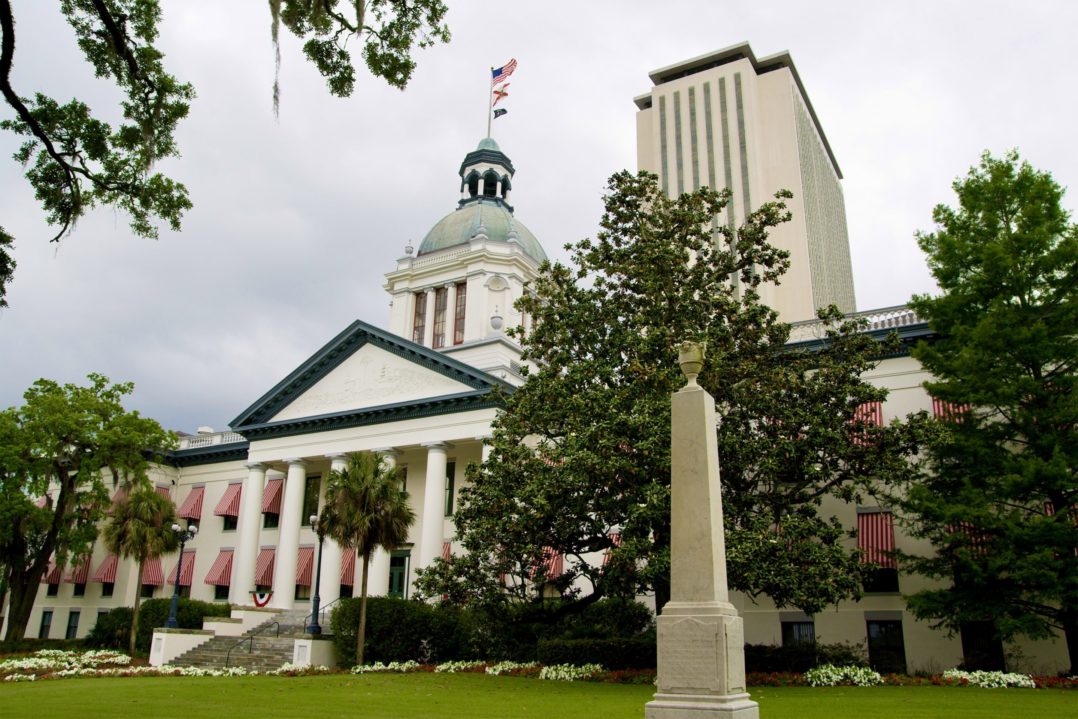School’s Out: An Overview of Florida’s Legislative Session and Education Policy
The school year in Florida is over, and so is a season of policymaking in the state legislature. But last month, a group of Florida state legislators advocating for UnidosUS’s most pressing educational issues offered an online recap of how their budget and policy meetings went amid the challenges of the global pandemic.
One of UnidosUS’s top priorities was to promote an education bill for English Learners it has sponsored for several years on Native Language Assessments. If passed, those assessments would provide the state’s nearly 300,000 English learners (ELs) with an opportunity to show their progress on academic subjects like math and science while giving them the supports they need to navigate linguistic barriers.
Representative Rene Plasencia (R-Orlando), a former educator and one of the bill’s main sponsors, explained how he was given the floor during a spring education subcommittee to discuss its importance. Relying on EL data provided by UnidosUS, he said his main message was that everyone succeeds when ELs get the proper supports.
“We want to give all our children, an opportunity to succeed in this country, regardless of where they come from. Education, how it’s delivered, can determine the success of that student, and we have data,” he said. “More children succeeding means that we all succeed, regardless of whether they’re your children or someone else’s children, having an educated society makes our entire society a better place to live in.”
Higher Education and Hispanic–Serving Institutions
At the onset of the pandemic, the legislature was facing a $3 billion deficit for higher education, and it had little idea of what federal funds would be available. Plasencia, who is the chair of the House Subcommittee on Higher Education, said he was disappointed that the Florida Senate was not able to provide as generous a budget plan as the one he presented.
While he said he did not believe it was the intent of his counterparts in the Florida Senate, the cuts disproportionately impacted Hispanic–Serving Institutions.
“When we’re talking about cuts, we’re talking to the hundreds of millions of dollars,” Plasencia explained, noting that this is especially challenging for a state with one of the largest Latino populations in the country.
Addressing Longstanding Educational Inequities
Senator Shevrin Jones, a Democrat from Hollywood, Florida, noted that the logistics of virtual learning have helped to exacerbate longstanding inequities for all students who are low-income and children of color, ELs, and students with disabilities. Jones, also a former educator, added that these populations not only struggle to keep up, but often find themselves stereotyped, misunderstood, and disproportionately disciplined. And while he acknowledged that advocacy work on educational equity is nothing new, for far too long, there has been a general perception that these problems are insurmountable, although the pandemic may have helped to change that mindset.
“I believe that with every passing year, our collective awareness of educational equity is definitely growing, especially since the age of COVID,” Jones said. “There’s nothing like coming into a classroom knowing you’ve had this summer slump, and now on top of it, we’ve got the COVID slide.”
Representative Andrew Learned, a Democrat from Sarasota, Florida, added that children of military families also face some of these delays and emotional disruptions. Fortunately for these children, his bill, Purple Star Campuses, which offers extra staffing and guidance for military children, and he felt that it could offer a precedent for how all students are taught.
“I think it’s addressing education in a more holistic way so that we’re not just worried about the reading and math, but also what are we doing to support these kids’ mental health,” he said.
In a similar vein, Jones noted that he had sponsored SB 1410, a bill that would require schools to adapt more explicit mental health policies for grades nine through 12.
“It really was making sure that schools gave students the resources needed for therapists, counselors, psychologists and social workers,” Jones said.
He also noted that during nine years as a science teacher, he came to recognize how a difficult social or economic home life merited greater in-school supports.
“We saw the students who their need was far greater than me teaching them,” he said. “I can’t get into the mind of a child to teach them if they’re not mentally there.”
Going Forward
Following the debrief, UnidosUS Florida State Director Jared Nordlund told ProgressReport.co that he was pleased with the dialogue policymakers were having but wants to see bigger policy advances in the coming year.
“Our goal for session was to educate legislators on what the state should be doing to help our community recover from COVID-19 that had a disproportionate impact on us. While we were pleased to see some progress being made to combat COVID-19 there’s still a lot of unsettled business, especially when it comes to education and increasing learning gains.”

